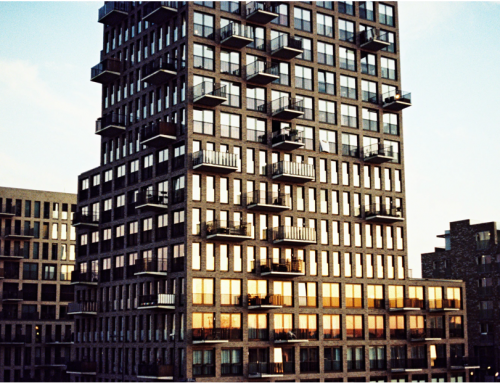A Residents’ Management Company (RMC) is a reasonable way to manage communal spaces. It is, in essence, a firm that is particularly set up to administer community facilities that are used by everyone in the building. This could include halls, gardens, staircases, and rooftops, among other things.
A resident management company is often formed when a developer completes a building and wishes to transfer management power to the leaseholders. Older apartment buildings are likely to have a resident management business in place.
Residents’ management companies have important responsibilities to ensure the smooth running of the building as well as keeping all residents safe and happy.
Take a look at our guide to the core resident management company responsibilities below.
How is a residents’ management company formed?
Leaseholders who are shareholders or members of the company often make up an RMC. A Residents’ Management Company is not for profit, yet it must meet a number of annual obligations in order to operate. These tasks include filing company accounts and notifying Companies House of individuals with significant control.
A residents’ management company is also responsible for respecting the terms of the lease, which includes ensuring that the building is properly maintained and insured at all times, in addition to these statutory responsibilities.
Residents’ management companies will also have a number of Directors who have been allocated authority to act on behalf of the members/shareholders. RMC Directors are typically in charge of ensuring that the annual budget is adequately handled and that all regulatory and lease obligations are met. They may also hire a professional managing agent to assist them.
5 responsibilities of a residents’ management company
1. Enforcing obligations on leaseholders
The leases also impose other obligations on the leaseholders, such as the payment of service costs and the upkeep of their own property’s interior. If a leaseholder fails to comply with the lease, it is the responsibility of the Directors to police and enforce these duties.
They must also ensure that the management company follows Landlord and Tenant legislation. For example, when working on a building, a Director must speak with leaseholders before beginning any repair or maintenance work that costs more than £250 per leaseholder. If leaseholders are not in agreement, they cannot be forced to pay more than £250 towards any works, regardless of cost, and this is a critical factor to get right as a Director.
Works of this nature are governed by S20 Of the Landlord and Tenant Act 1985 and Directors of RMC’s need to understand this or have Managing Agents who can advise to ensure that they are fully protected.
2. Health and safety and fire risk assessment
A risk evaluation of all communal and exterior locations for health and safety and fire safety (including the roof). Because these spaces are deemed a working environment owing to repair or maintenance work, all contractors entering the premises must undergo a risk assessment. If there is an accident and there is no proof of a risk assessment, the RMC is more likely to be punished and/or sued for carelessness.
3. Electrical safety assessments
An assessment of the electrical safety of all electrical systems and conductors. Any electrical equipment provided by the landlord must be checked and maintained on a regular basis (fixed wiring within communal areas must be tested every five years by a qualified engineer).
4. Maintenance and contractors
Maintenance issues that an RMC must stay on top of are:
- Maintaining the roof
- Maintaining the exterior of the property
- Ensuring the management company performs necessary repairs
As well as staying on top of maintenance of communal areas and outdoor areas, an RMC must ensure that contractors are sufficiently qualified to carry out the tasks assigned to them in a safe manner. This incorporates rigorous in-place ‘Working at Height’ practices. A violation may result in a legal claim, as well as an inquiry and possible prosecution by the Health and Safety Executive.
Working at height
The notion is that any labour at height that can be avoided should be avoided if possible. If it cannot be avoided, it should be planned and assessed so that work can be completed with the least amount of risk.
This includes duties like changing light bulbs, basic cleaning, testing smoke detectors, and gutter cleaning. This applies to working at any height, including below ground level, where a person could fall and be injured.
5. Improve resident communication with a quarterly Management Company Board update
AGMs, Board Meetings, and General Meetings are all attended by directors. They supervise the service charge accounts, budget, and end-of-year accounts to ensure the company’s financial stability. Liaison with residents is also required, as is the resolution of tough circumstances and disagreements.
Looking for a property management company to assist your RMC?
We’ve been assisting fortunate leasehold property owners and residents with their Right To Manage procedure for many years, and we’re regulated by ARMA, so you can be certain that your block’s management is in excellent hands. Our services are all-inclusive, so you can sit back and relax while we handle every part of the building.
If you want to exercise your Right to Manage, or form an RMC, contact Scanlans now to find out how we can help you through the formation process and continuing management of your residential block.
Residents’ Management Company Responsibilities FAQs
What does it mean to be a member of a management company?
A member of a residents’ management company, not a director, is often not involved in day-to-day management. Although members often have the authority to appoint or dismiss directors, it is the directors who make all major decisions.
What type of responsibilities should an RMC have?
Maintain statutory company records, notify any changes, and file all required returns with Companies House and HMRC. Ensure that the RMC service charge accounts provide an accurate and balanced representation of the RMC’s finances. The director should ensure the management company complies with all relevant health and safety and fire risk laws.
What are residential management companies?
A Residents’ Management Company is a non-profit organisation founded by residents of a block of flats who intend to manage and maintain the building in which their own property is.









Leave A Comment
You must be logged in to post a comment.